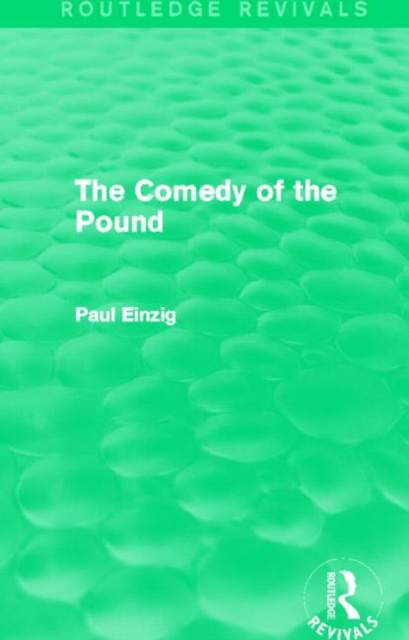
- Retrait gratuit dans votre magasin Club
- 7.000.000 titres dans notre catalogue
- Payer en toute sécurité
- Toujours un magasin près de chez vous
- Retrait gratuit dans votre magasin Club
- 7.000.0000 titres dans notre catalogue
- Payer en toute sécurité
- Toujours un magasin près de chez vous
Description
First published in 1933, this book looks at the key events relating to the fluctuations of sterling that surrounded the suspension of the gold standard in September 1931. It explores the idea that monetary authorities receive more recognition and admiration for their work from those abroad than those at home, whether well deserved or not. Indeed, after the economic episodes of September 1931, many people on the Continent regarded everything that happened to the pound as being the result of a carefully planned and executed monetary policy. Here, the author argues that the praise of British authorities from abroad was undeserved and that in actual fact, the behaviours of the monetary authorities in the aftermath of September 1931 were unsophisticated. This book describes the events following the pound's collapse as having all the ups and downs of a comedy.
Spécifications
Parties prenantes
- Auteur(s) :
- Editeur:
Contenu
- Nombre de pages :
- 204
- Langue:
- Anglais
- Collection :
Caractéristiques
- EAN:
- 9780415819527
- Date de parution :
- 04-06-14
- Format:
- Livre broché
- Format numérique:
- Trade paperback (VS)
- Dimensions :
- 140 mm x 216 mm
- Poids :
- 258 g







